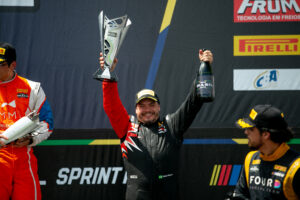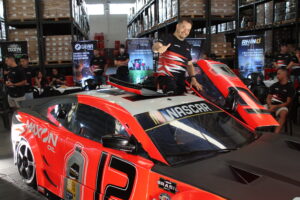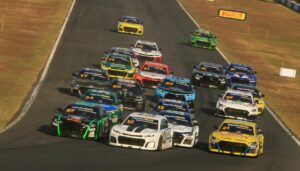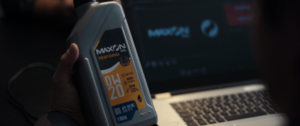The year 2020 was quite challenging for sports in general. However, as with several sectors of the economy, some niches experienced rapid growth and are moving into 2021 with even more positive projections. This is the case with Virtual Motorsport (VM), which attracts new drivers every day, both beginners and professionals, as well as brands interested in pioneering support for eSports.
Maxon Oil, a giant in the national lubricant market and sponsor of real tracks in various categories, has just announced its sponsorship of Kings of Asphalt (Koa), a prominent team in Brazilian virtual motorsport. Koa, as it is affectionately called, boasts prominent names from both virtual and real tracks, such as Adriano Carraza, a top 10 world-ranked driver; Rodrigo Lorenzo, a top 16 driver in the Americas; Wendell Parra, a multi-champion in the iRacing simulator; Marco Brasil, a top 10 national driver in Indy on iRacing; and other names like Lorenzo Roth, a top 3 professional in Stock Brazil and a six-time Stock Car champion.
In 2021, Koa will compete in championships including Iracing Brasil, J6, ApexGT, e-pilotos, BTS, e-Sports, OKBR, Warmup eSports, and Virtual Challenger. The team is the only multi-platform one in the segment and brings together over 70 drivers, both beginners and professionals. “Our expectation for 2021 is to establish ourselves as the largest multi-platform team in Brazil and expand contracts with drivers,” says Bruno Brochveld, partner of Koa along with Fernando Albertoni.
Brazil is the world’s third-largest market in terms of esports players and enthusiasts, reaching an impressive audience of 75 million people. Sponsorships like Maxon Oil’s support for Koa are making the structure increasingly professional and democratic. “The virtual environment is the fastest way to popularize motorsport, which has traditionally been recognized as an expensive sport. Now anyone, in a much more accessible way, can participate in a race and pursue their passion. We have great esports talents in the country, and Maxon Oil is proud to be a supporter,” says Edson Reis, CEO of Maxon and a driver in Copa HB20
Professionalization
According to Brochveld, the compensation for virtual track drivers varies between prizes and salaries, ranging from R$ 300 to R$ 10,000 per month. “The big difference is that the investment to enter the sport can be up to a thousand percent cheaper than real motorsport,” he explains.
“With a gaming controller, you can participate. Except for the fact that you won’t be inside a real car, everything else about the experience is very similar to physical tracks, including physical effort, the need to prepare the car for the race, and the excitement of each stage,” adds Albertoni.
Similar to traditional motorsport, virtual motorsport is divided into various leagues and categories. There are about four seasons per year, with weekly races, often streamed on YouTube.
“This year, many famous professional drivers joined VM during the pandemic. On the other hand, we also have cases of virtual track drivers gaining recognition on real tracks due to their online performance. One of them is Igor Fraga, who reached Formula 3 thanks to a title in Gran Turismo,” recalls Brochveld.




